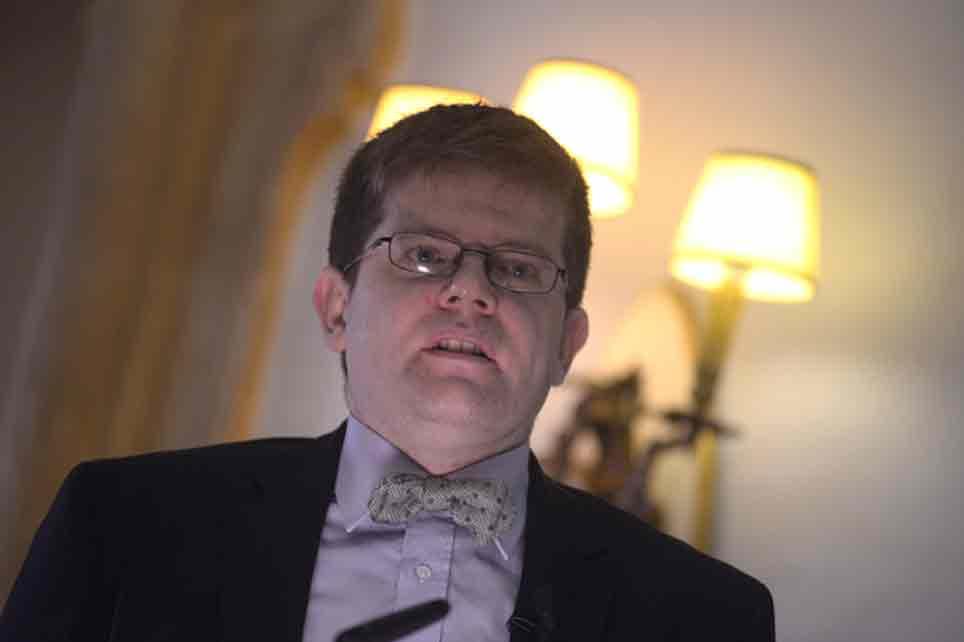Today marked the first national conference for social wellbeing, where experts in the field gave insight as to factors affecting a person's wellbeing, as well as raised questions regarding how this concept can be calculated.
President Marie Louise Coleiro delivered the opening speech at the event. Her Foundation for the Wellbeing of Society has met with many people over the past year, she explained, adding that the Foundation's aim is to promote initiatives and enhance the wellbeing of society. "All over the world, policy makers are still grappling with how to chart the progress of wellbeing. How can we compare it across different social groups? Can we compare it over time?"
The President explained that while the GDP can calculate economic information, it cannot, for example, calculate work-life balance, environmental relations or capture the distribution of income.
"Research has found that unemployment, health, environment and culture are all wellbeing determinants".
Dr Ruth Farrugia, Director General of the President's Foundation for the Wellbeing of Society said that one of the main goals adopted recently by the UN was the need to further good health and wellbeing for all. "Thus meaning that wellbeing is on the international agenda, the issue however, arises when trying to determine what affects a person's wellbeing. For some it's the struggle against poverty, for others it could be different factors, such as justice, inequality, education etc".
She explained that the Foundation finds itself in a unique position to shed light on wellbeing in Malta, given that they listen to both the general public, as well as academics. "We try and engage with minority and marginalised groups, helping them find their own means of empowerment, allowing them to speak about matters close to their hearts".
Over the past year, the Foundation has met with around, 2,000 people, she said, and held discussions on health, environmental conditions, income fluctuations and relationships. "Participants identified relationships as having a strong impact on wellbeing, including those with partners, parents and children, but also on matters relating to inclusion in general".

Professor Liam Delaney, from Sterling University in the UK, explained that while GDP and GNP are used to measure economic progression, they were never intended to measure the wellbeing of society.
He explained that the international community has not yet come to a conclusion as to how to measure wellbeing.
Professor Delaney mentioned that society potentially focusses too much on income. "There is no guarantee that a higher income will improve your wellbeing. People are more worried about losing income, than gaining it. Involuntary unemployment however, is a major disruption, and affects many factors of a person's wellbeing.
Turning to loneliness, he called it "one of the greatest epidemics of our age".
Dr Marie Briguglio, an Economics lecturer at the University of Malta, looked at how different countries and supranational organisations measure wellbeing.
She spoke about the causes and suppression of wellbeing, noting the need for data. “We know that increase in income matters at low levels of income, but after a certain level of income is reached, further increases seem to stop influencing the person”.
Turning to volunteering, she said that studies found it to be a positive determinant.
In Malta, the most positive trends include financial wellbeing, and social wellbeing. “When it comes to physical and environmental scores, however, we do not score well. We have one of the densest populations in the world and have high obesity and high anxiety rates”.
In Europe, Malta stands roughly at the middle of the road on self-assessed wellbeing measures. “We still need to gather systematic data on most areas affecting wellbeing. There are trends which give indications, and world-wide studies, however they are not in-depth enough to understand where the problems lay, rather they just let us know where we rank as a nation. More data would help in understanding cross-sections in Malta, such as differences between age-groups, between localities etc. She also mentioned that of the data available, none are brought together in a local index”.
“We are at that stage in our society where we need to be more concerned with our wellbeing rather than wealth”.
“One factor that affects wellbeing is unemployment as a life-event, and another is personality. Personalities are more complex to study, but in terms of policy, early childhood intervention is extremely important”.
She explained that factors affecting wellbeing will differ from country to country, mentioning that traffic in Malta could be having a significant impact.
Photos by Jonathan Borg.